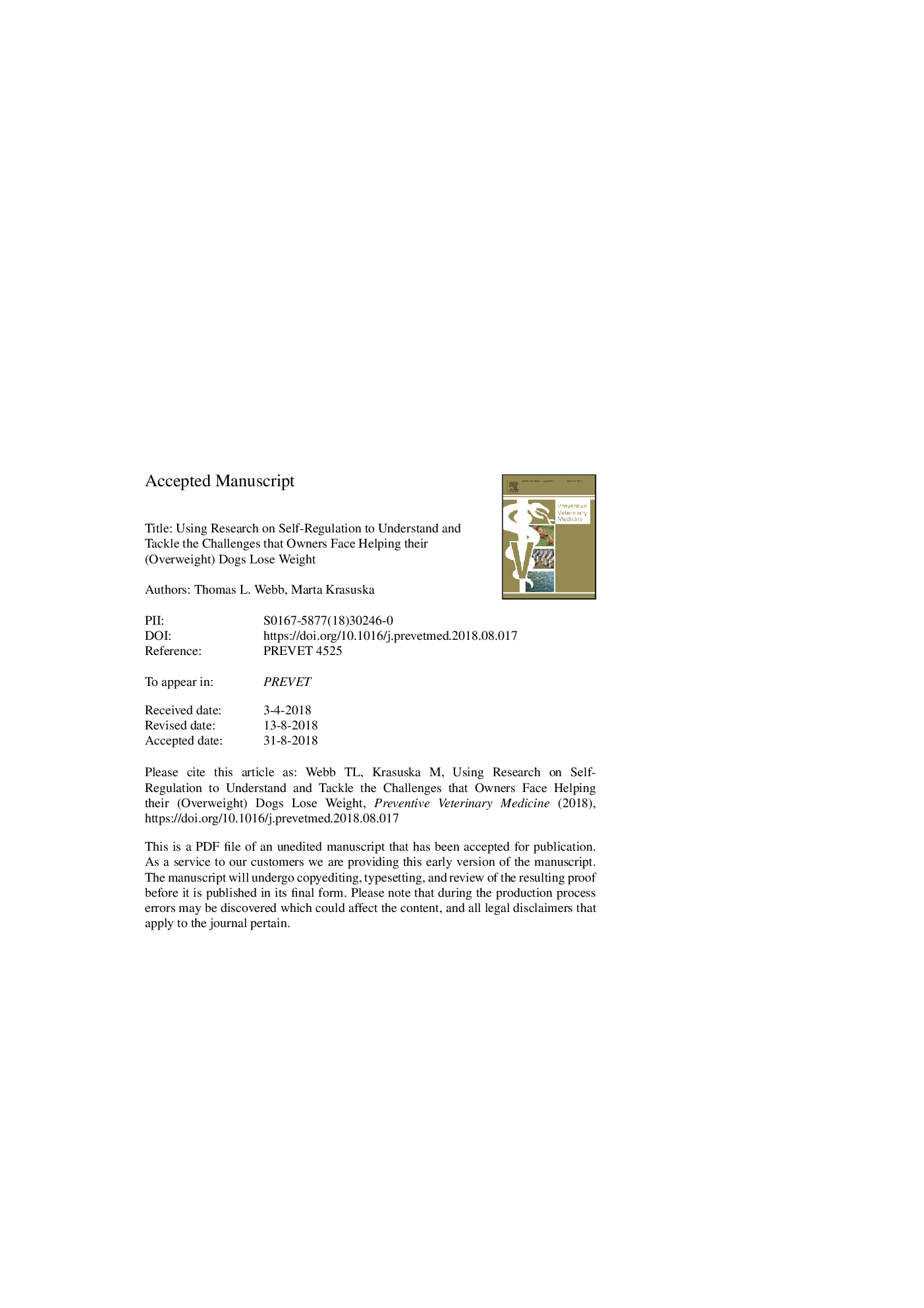| Article ID | Journal | Published Year | Pages | File Type |
|---|---|---|---|---|
| 11029261 | Preventive Veterinary Medicine | 2018 | 15 Pages |
Abstract
The present research sought to (i) understand the challenges that dog owners encounter in helping their pet lose weight, and (ii) develop and test an intervention designed to help dog owners to deal with these challenges. A series of focus groups (Nâ=â79 dog owners, veterinarians, and industry experts) informed the content of an intervention designed to prompt owners to form if-then plans (or “implementation intentions”) identifying challenges (e.g., inclement weather) and specifying how to respond (e.g., play with the dog indoors). This intervention was evaluated in a single-blind, randomized controlled trial (Nâ=â106 owners of overweight dogs) against a control condition who were simply asked to set relevant goals. Changes in the owners' beliefs, behaviour, and the dog's weight and body condition were measured around 2 months later. The primary finding was that dogs in the intervention condition lost the same percentage of their body weight on average each week (M = -0.065, SDâ=â0.65) as dogs in the control condition (M = â0.24, SDâ=â0.55), F(1, 36)â=â0.70, pâ=â .41, eta2â=â.019, although it should be noted that follow-up data was only available for around half of the sample. Analysis of the factors that were associated with changes in weight among the dogs in the trial suggested that owners' lack of knowledge about appropriate feeding and exercise was associated with poorer outcomes, suggesting that future interventions may need to provide information and help owners to set appropriate goals before encouraging them to make if-then plans to support the implementation of those goals.
Related Topics
Life Sciences
Agricultural and Biological Sciences
Animal Science and Zoology
Authors
Thomas L. Webb, Marta Krasuska, Zsuzsanna Toth, Hugues Ruault du Plessis, Laurence Colliard,
